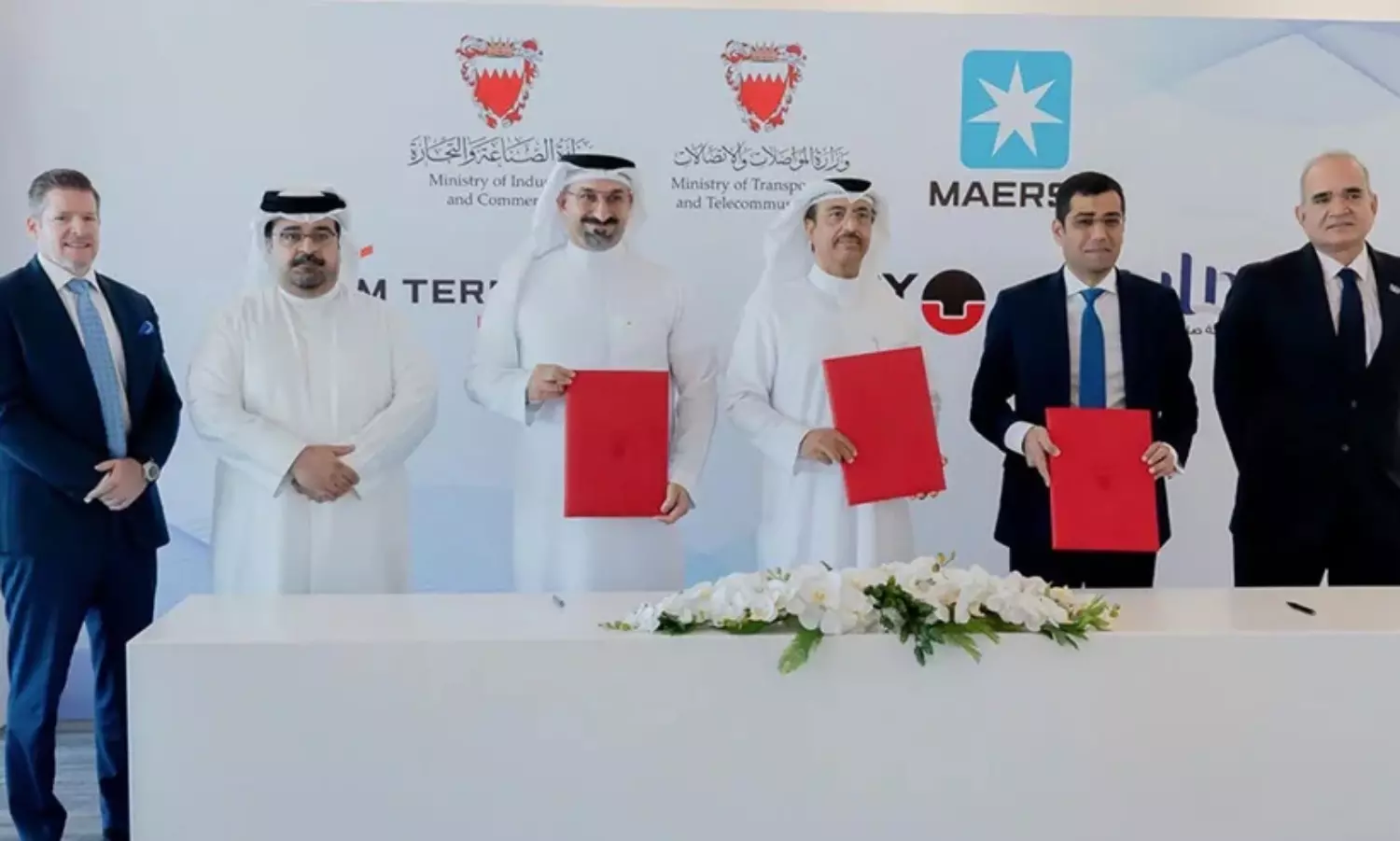Maersk signs MoU for ship recycling in Bahrain
Maersk will serve as operational advisor, providing expertise on implementing sustainable practices in recycling

A memorandum of understanding (MoU) was signed between Maersk and the Ministry of Transportation and Telecommunications and the Ministry of Industry and Commerce to evaluate and establish a ship recycling initiative in the Kingdom of Bahrain.
The signing ceremony was also attended by partners in the project, which included the Arab Shipbuilding and Repair Yard Company (ASRY), SULB Company and APM Terminals Bahrain, the operator of Khalifa Bin Salman Port and a subsidiary of Maersk, says an official release.
The ministries will provide regulatory support to ASRY, which, in turn, will be responsible for equipping the yard and docks with the necessary requirements for the ship recycling process, the release added. "Maersk will serve as the technical and operational advisor, providing expertise on implementing sustainable practices and responsible standards in ship recycling. SULB will utilise the steel from the ship recycling process and further process and recycle it for the local and international markets."
Ahmed Hassan, Senior Vice President, Head of Asset Strategy, Maersk says: "Maersk has established a ship recycling programme governed by our own Responsible Ship Recycling Standards (RSRS) independent of geography. The standards comprise stringent interpretation of the guidelines laid out by the IMO through the Hong Kong Convention and exceed requirements on several parameters, including downstream waste management, standards on labour and human rights, anti-corruption, etc. We are proud to bring our technical and operational knowledge to the Kingdom of Bahrain and share it with like-minded stakeholders that will help the industry address the capacity challenges we are staring at in the future. We are hopeful that this MoU will provide the right platform to accelerate responsible ship recycling in the Kingdom, create a positive impact on the country’s economy and create jobs."
Maersk introduces China-Bangladesh service
Maersk launched a new ocean shipping service between China and Bangladesh to meet the growing trade demand, especially in the retail industry.
The new service, called SH3, commenced service on July 7, 2024, and adds more capacity to the ocean network between the two countries. The SH3 rotation starts from Shanghai Port in China, with calls at Xiamen, Kaohsiung, Nansha and Tanjung Pelepas on the way to Chittagong, Bangladesh. On the return journey to Shanghai Port, SH3 will call Tanjung Palapas, where long-haul routes to Europe are connected, says an official release.
Wen Bing Lim, Regional Head, Intra-Asia Market, Maersk says: “In this time-sensitive industry, retailers demand timely delivery across the entire supply chain to meet their customers’ fast-changing expectations. The new network accelerates the supply chain and benefits Chinese textile raw materials exporters and garment manufacturers in Bangladesh.”
Textile exports account for a significant portion of China’s exports to Bangladesh. The Bangladesh readymade garments (RMG) industry comprises over four thousand factories serving over 1,00 international clothing brands. Bangladesh exports to more than 150 countries a wide variety of knitwear and woven garments such as shirts, trousers, T-shirts, denim, jackets, and sweaters, the release added.


